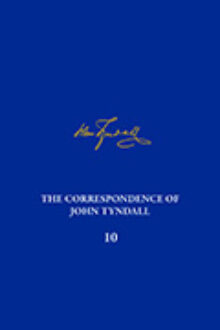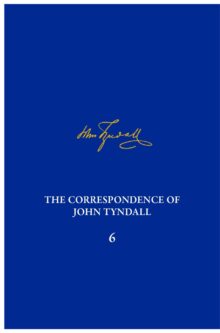
Ken Corbett
Ken Corbett is a doctoral candidate in the Department of History at the University of British Columbia.
The Correspondence of John Tyndall, Volume 10
The Correspondence, January 1867–December 1868
The tenth volume of The Correspondence of John Tyndall spans from January 1867 to December 1868. It begins with Tyndall publicly enmeshed in a controversy that revealed his views on race, politics, and justifiable violence. Further pressure is exerted on him personally by the death of his mother Sarah, and the numerous calls on him to support relatives in Ireland. Michael Faraday’s death in August 1867 adds to these demands, as Tyndall assumes Faraday’s responsibilities at the Royal Institution. In this period, Tyndall writes his popular book Sound, as well as Faraday as a Discoverer, his memorial to Faraday.
The Correspondence of John Tyndall, Volume 6
The Correspondence, November 1856-February 1859
This sixth volume of Tyndall’s correspondence contains 302 letters covering a period of twenty-eight months (1856-1859). It begins shortly after Tyndall returned from his first glacier research in the Alps and follows him as he experimented and lectured on physics in central London at the Royal Institution of Great Britain (RI), visited friends, joined London’s fashionable social circles, published and reviewed scientific articles, corresponded with fellow men of science on a wide range of topics, and developed his theories about the structure and movement of glaciers. Importantly, volume 6 includes Tyndall’s major expeditions to the Alps and also documents some of his most dangerous mountaineering exploits. In letters to his closest friends, Tyndall captured the excitement and achievement of his expeditions. By the end of the period, his is increasingly respected as a scientist in the wider academic world.


